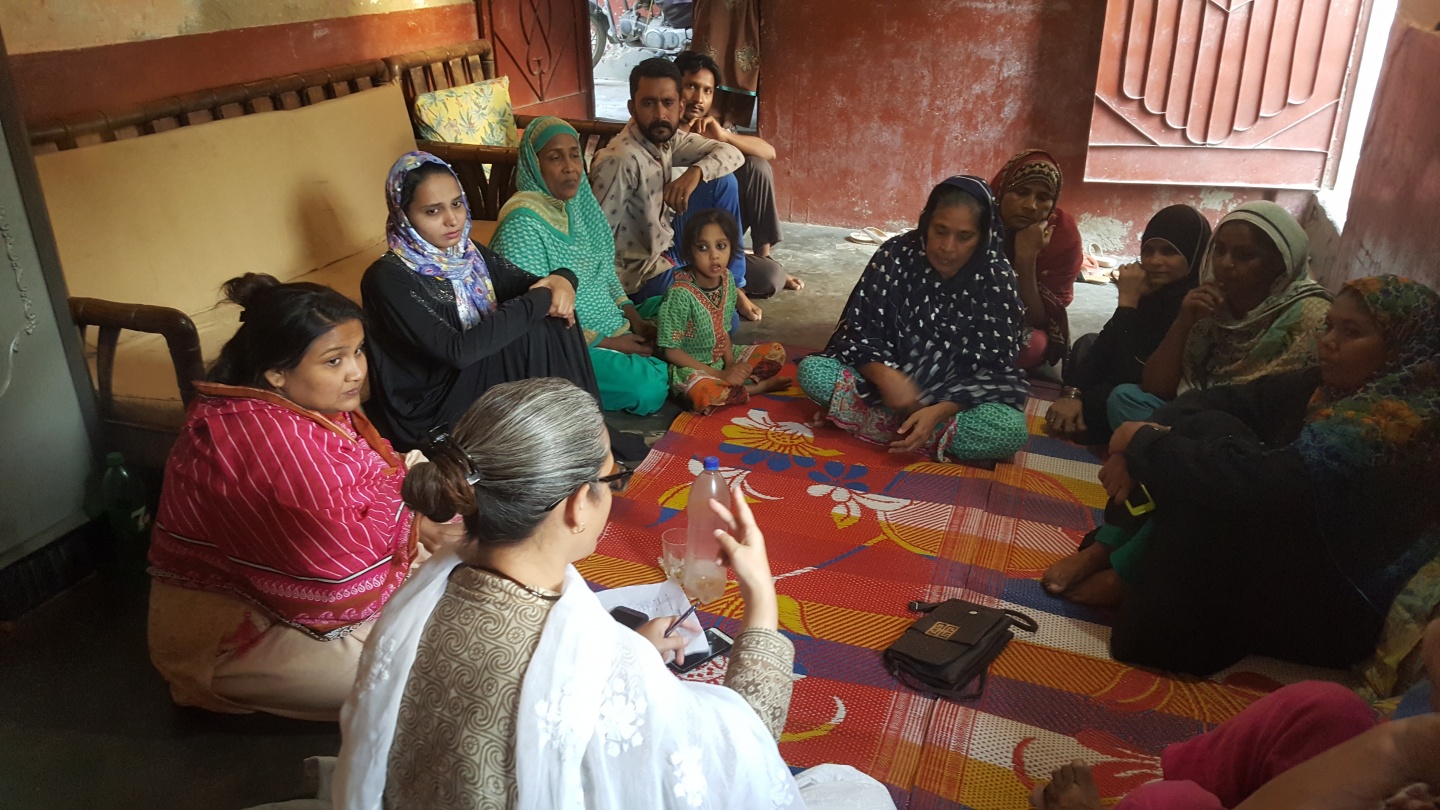13 November, 2019
| Union | Home-Based Women Workers Federation |
| Country | Pakistan |
| Text | G Manicandan |
Due to hidden and unregulated work, home-based workers in Pakistan are largely unprotected. The Home-Based Women Workers Federation (HBWWF), affiliated to IndustriALL in 2019, has played a critical role in organizing the scattered and isolated group, articulating their rights and winning significant victories for its members.
The working conditions for home-based workers in Pakistan are very poor, and include repetitive and hazardous work. The hours are usually long, sometimes up to 16 hours a day, and wages are low. At the bottom of the production chain, the workers lack access to and knowledge of the market.
Initially, seven cooperatives for garment and bangle workers were started in the Sindh province. These cooperatives provided a platform for women workers to share problems, build solidarity and take steps to address their issues.
A key demand was that the government formally recognize home-based work, set legal minimum wages and extended the coverage of social security legislations to benefit home-based workers. These workers also wanted their concerns to be treated as workers’ issues, rather than being considered gender issues.
The home-based workers decided to form a union in order to gain collective strength, and bargain for higher wages and better working environment with contractors and investors, and to engage with the government to achieve their demands. The home-based workers also decided to play an active role in making the government of Pakistan ratify ILO’s convention on home-based workers.
Organizers established contacts with home-based women workers across the country to understand the problems they were facing. They organized study circles to create awareness of their rights and created home-based women workers groups in different cities in the Sindh, Punjab and Baluchistan provinces.
During this process, home-based women workers engaged with labour department officials, the social security institute and Workers Welfare Board, raising their concerns in series of meetings.
“These events underlined the need for an effective organization to take forward the workers’ concerns,”
says Zehra Khan, general secretary of HBWWF.
Members were recruited on the basis that they were engaged in home-based work, piece-rate workers and self-employed. Anyone can be a member of the union, regardless of religion, colour and caste.
After a series of orientation meetings a core group of ten workers was formed. They received training on labour law and trade union practices by the legal team of National Trade Union Federation (NTUF), an IndustriALL affiliate.
In 2009, the first home-based all women workers’ union was registered, made up of embroidery workers in Quetta. Another union with women bangle workers was then registered in Hyderabad. The HBWWF was registered the same year with a membership of about 1,000. The HBWWF currently has 4,500 members in Sindh, Balochistan and Punjab.
The federation can legally negotiate on the behalf of these workers. Together with the relevant authorities, the HBWWF is working on solutions for covering the workers under government social security schemes.
The home-based workers cooperatives have become a nucleus of activities, as well as a place where women workers from different parts of the city meet union representatives. In some areas, workers are getting better rates due to bargaining by union representatives.
Many women have taken skill and capacity building training, which has empowered them to discuss their issues and to negotiate with investors and contractors on wages.
“This year, the Sindh province announced minimum wages for glass bangle workers, thereby formally recognizing them as home-based workers for the first time. The minimum wage is a significant increase from existing wages. But an announcement alone is not sufficient; we are working to create awareness among workers and taking actions to implement it,”
says Zehra Khan.
A key achievement of HBWWF and its members is the successful lobbying to achieve the Home-Based Workers Act, passed in May 2018, which formally recognizes home-based workers in Sindh. HBWWF is working to replicate it in other provinces as well.
“Now, the HBWWF is lobbying the government and legislators on both federal and provincial levels for social protection for home-based women workers, as well as the ratification of ILO convention on Home Work, C177,”
says Zehra Khan.
